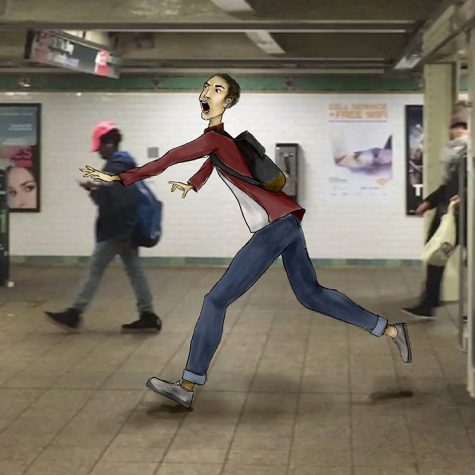Earlier this month, I was an hour late to class because of an egregious subway delay — a cascading sequence of events stemming from a single set of doors that wouldn’t close. Due to my tardiness, I missed a reading quiz that was administered at the start of class. When I asked my professor if there were any way I could make it up, she sympathetically told me that I couldn’t out of fairness to my classmates. I didn’t fight the verdict because it does say on the syllabus that we won’t be able to make up quizzes if we’re late, but I did feel a tinge of injustice over how the academic policy was so unyielding for an outcome I couldn’t possibly have prepared for. I also believe that I was marked absent since I never got the opportunity to sign in on the sheet that goes around at the beginning of class, meaning that I already have one absence out of the two that were allotted to us before it negatively affects our grade. As a school that prides itself on its immersion into New York City, NYU should implement a standardized policy so that fair, consistent accommodations can be made based on the reality of living in New York City, including having to deal with a mass transit system that is extremely frustrating and often unreliable.
It’s no secret that the MTA has its work cut out for itself. Even after an $800 million effort to improve the subways, the on-time rate is at a dismal 68 percent as of this past summer, with more than 60,000 trains delayed last month. There is also an abundance of planned service changes that riders must take into account, including how the L train is shut down every weekend in the month of October. Ever since I moved to Brooklyn this year, feeling exasperated due to transportation has been a constant theme in my life — perhaps amplified because I mainly take the L to travel to and from Manhattan. Commuting in New York City has shown me time and time again how little control I have over my punctuality.

It’s unreasonable to be penalized for something that is rather erratic, especially when the consequence directly affects your grade in the class. GPA is undeniably one of the key components of a student’s livelihood. It has rippling ramifications — students’ graduate school acceptances are, to an extent, contingent on their GPA while some students must maintain a certain GPA in order to remain qualified for the financial scholarship that they’re receiving. I can’t imagine there existing a policy so unforgiving that a subway delay would significantly alter a student’s GPA; it’s the principle of it that matters. The fact that a stringent class policy could have this impact on a student’s life must be considered by the university.
An immediate concern that I anticipate any faculty or administrator to have is how students might take advantage of a generous system that is almost entirely dependent on a student’s word. Instead of succumbing to that fear, I encourage the university to engage in discussion to compile a comprehensive policy that is reflective of all the possibilities. One option is for NYU to accept MTA’s Delayed Verification notes, which certify someone’s tardiness is due to a late train. Fifty seven percent of NYU’s undergraduate population in the academic year of 2016 to 2017 either lived off-campus or commuted, and a sizable portion probably use the subway to get to campus. We must strive to be a university that is fair, meaning that our policies, at their best, should accurately reflect the environment we’re in.
I’m humbled by the fact that I’m just one commuter with one unfortunate anecdote. As I ponder the rest of the student population, I can’t help but think of the many instances in which a grade was not reflective of effort or performance but rather a wholly unexpected circumstance. An experience like this is discouraging and invalidating, but as mentioned before, it can have much graver consequences. We have no choice but to place our faith in this institution and adhere to its rules, so it’s crucial that the academic policies here aim to aid us rather than hinder us.
Opinions expressed on the editorial pages are not necessarily those of WSN, and our publication of opinions is not an endorsement of them.
A version of this article appeared in the Monday, Oct. 15 print edition.
Email Janice Lee at [email protected].






















































































































































